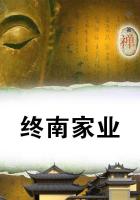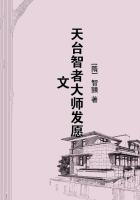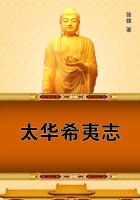It is in no way unjust that public officers thus selected and trained should be exclusively eligible to offices which require specially Indian knowledge and experience. If any door to the higher appointments, without passing through the lower, be opened even for occasional use, there will be such incessant knocking at it by persons of influence that it will be impossible ever to keep it closed. The only excepted appointment should be the highest one of all. The Viceroy of British India should be a person selected from all Englishmen for his great general capacity for government. If he have this, he will be able to distinguish in others, and turn to his own use, that special knowledge and judgment in local affairs which he has not himself had the opportunity of acquiring. There are good reasons why (saving exceptional cases) the Viceroy should not be a member of the regular service. All services have, more or less, their class prejudices, from which the supreme ruler ought to be exempt. Neither are men, however able and experienced, who have passed their lives in Asia, so likely to possess the most advanced European ideas in general statesmanship; which the chief ruler should carry out with him, and blend with the results of Indian experience. Again, being of a different class, and especially if chosen by a different authority, he will seldom have any personal partialities to warp his appointments to office. This great security for honest bestowal of patronage existed in rare perfection under the mixed government of the Crown and the East India Company. The supreme dispensers of office, the Governor-General and Governors, were appointed, in fact though not formally, by the Crown, that is, by the general Government, not by the intermediate body; and a great officer of the Crown probably had not a single personal or political connection in the local service: while the delegated body, most of whom had themselves served in the country, had and were likely to have such connections.
This guarantee for impartiality would be much impaired if the civil servants of Government, even though sent out in boyhood as mere candidates for employment, should come to be furnished, in any considerable proportion, by the class of society which supplies Viceroys and Governors. Even the initiatory competitive examination would then be an insufficient security. It would exclude mere ignorance and incapacity; it would compel youths of family to start in the race with the same amount of instruction and ability as other people; the stupidest son could not be put into the Indian service as he can be into the church; but there would be nothing to prevent undue preference afterwards. No longer all equally unknown and unheard of by the arbiter of their lot, a portion of the service would be personally, and a still greater number politically, in close relation with him. Members of certain families, and of the higher classes and influential connections generally, would rise more rapidly than their competitors, and be often kept in situations for which they were unfit, or placed in those for which others were fitter. The same influences would be brought into play which affect promotions in the army: and those alone, if such miracles of simplicity there be, who believe that these are impartial, would expect impartiality in those of India. This evil is, I fear, irremediable by any general measures which can be taken under the present system. No such will afford a degree of security comparable to that which once flowed spontaneously from the so-called double government.
What is accounted so great an advantage in the case of the English system of government at home has been its misfortune in India- that it grew up of itself, not from preconceived design, but by successive expedients, and by the adaptation of machinery originally created for a different purpose. As the country on which its maintenance depended was not the one out of whose necessities it grew, its practical benefits did not come home to the mind of that country, and it would have required theoretic recommendations to render it acceptable. Unfortunately, these were exactly what it seemed to be destitute of: and undoubtedly the common theories of government did not furnish it with such, framed as those theories have been for states of circumstances differing in all the most important features from the case concerned. But in government, as in other departments of human agency, almost all principles which have been durable were first suggested by observation of some particular case in which the general laws of nature acted in some new or previously unnoticed combination of circumstances. The institutions of Great Britain, and those of the United States, have the distinction of suggesting most of the theories of government which, through good and evil fortune, are now, in the course of generations, reawakening political life in the nations of Europe. It has been the destiny of the government of the East India Company to suggest the true theory of the government of a semibarbarous dependency by a civilised country, and after having done this, to perish. It would be a singular fortune if, at the end of two or three more generations, this speculative result should be the only remaining fruit of our ascendancy in India; if posterity should say of us, that having stumbled accidentally upon better arrangements than our wisdom would ever have devised, the first use we made of our awakened reason was to destroy them, and allow the good which had been in course of being realised to fall through and be lost, from ignorance of the principles on which it depended. Di meliora: but if a fate so disgraceful to England and to civilisation can be averted, it must be through far wider political conceptions than merely English or European practice can supply, and through a much more profound study of Indian experience, and of the conditions of Indian government, than either English politicians, or those who supply the English public with opinions, have hitherto shown any willingness to undertake.














